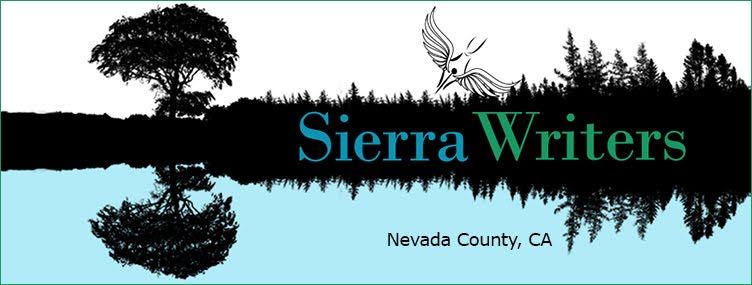Ingrid will highlight the conference speakers, noting areas of expertise and she'll provide tips for how to get the most from participating in a Critique Session.
After the Conferece preview, Chris Hall will co-facilitate an Open Read.
 Ingrid Keriotis’ first book of poetry,
It Started with the Wild Horses, was published this past spring
by Finishing Line Press. When it comes to writing poetry, she believes
in Richard Hugo’s advice: “You owe reality nothing and the truth about
your feelings everything.” Ingrid lives in Grass
Valley where she teaches English and works in the Writing Center at
Sierra College. She is active in local writing groups and is on the
organizing committee for the Sierra Writers Conference.
Ingrid Keriotis’ first book of poetry,
It Started with the Wild Horses, was published this past spring
by Finishing Line Press. When it comes to writing poetry, she believes
in Richard Hugo’s advice: “You owe reality nothing and the truth about
your feelings everything.” Ingrid lives in Grass
Valley where she teaches English and works in the Writing Center at
Sierra College. She is active in local writing groups and is on the
organizing committee for the Sierra Writers Conference.Open Read Preparation Guidelines
Sierra Writers Open Reads are intended to be a safe place for writers to experiment with craft, share vision, and develop voice.
Guidelines:
- Bring a single copy of your piece, double-spaced, Times New Roman (or similar) font. Reading from electronic devices is not allowed.
- Limit your piece to 750 words (2 to 3 pages), double-spaced, or about 3 minutes, read aloud. If submitting poetry, no more than three short poems.
- Work should be anonymous. Please be sure author’s name or other identifying information is removed
- Work can be whole pieces or excerpts, poetry or prose. If it would help the group, please feel free to indicate the genre or tell us it is from a larger work. The piece will be critiqued on its own.
Please consider these suggestions for how to get the most out of the Open Read:
- Be gentle, kind, and supportive.
- Be an active listener. Take notes; be prepared to be specific with your comments.
- Begin with a positive comment. In order to grow as a writer, it is important to be able to identify what is working in a piece, even if you don’t like the topic, have issues with the voice, etc. What is the author doing that is working well? Where is the energy? What images are potent and interesting?
- Keep your criticism constructive. “I didn’t like it” is not helpful to a writer, but “I disagreed with the point the author was making, which made me lose interest in the piece. Maybe the author could look for a way to make it more accessible to people with diverse opinions.” Another example: “It was hard to follow” isn’t nearly as helpful as “The point of view moved from person to person very quickly, which I had a hard time following.” Follow up with specifics from your notes about where this happened in the piece, if possible.
- Focus on the writing. Our goal is to give the author feedback on their writing. If you find you are talking more about yourself and your own experiences related to the topic in the piece, consider talking with the author about those after the Open Read is over. Give the writing and the writer the attention during the few minutes that are allotted to their work, and engage on a personal level afterward.
Buy your 2020 conference ticket!
Critique Session spots (Saturday, Grass Valley NCCN) are sold
first come, first served.ONLY 30 availableCritique Session CategoriesFiction
Flash Fiction
Historical Fiction
Young Adult Fiction
Memoir Creative Nonfiction
Poetry





